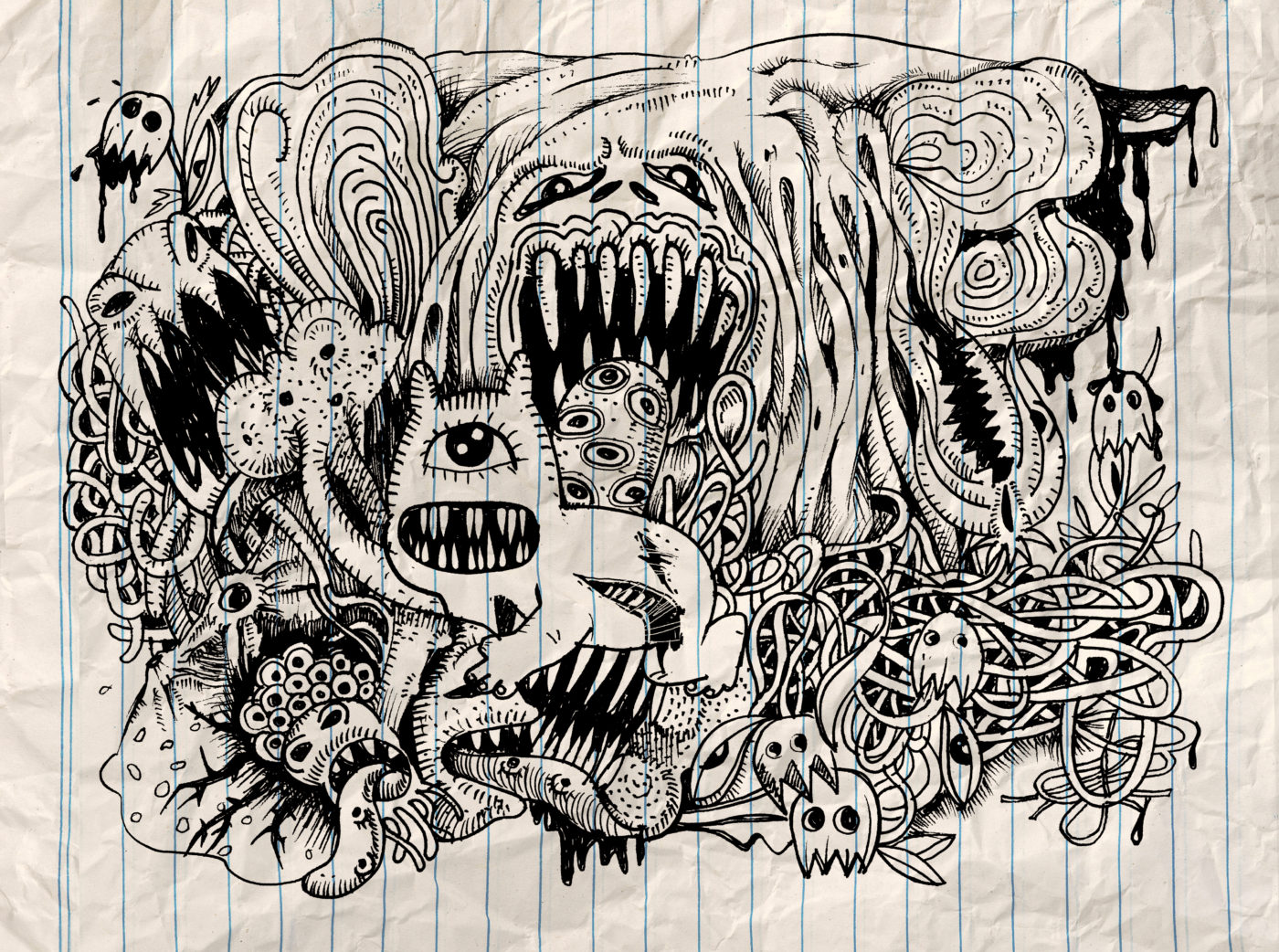
Frankenstein & Monsters of Our Own Making
As a child, I enjoyed terrorizing myself by staying up late on Friday nights and watching scary movies. Most of the movies were old Hollywood classics and one such film was the 1931 version of Frankenstein starring Boris Karloff, based on the 1818 classic novel by Mary Shelley. The movie’s mute and murderous monster scared this little kid, which is the point of a horror film, right?
Unfortunately, in the film, the original story is hardly recognizable. For instance, the creature that Victor Frankenstein brings to life in the novel (his name is Henry Frankenstein in the film) is far from mute. He actually becomes articulate and well-spoken with human-like emotions. Having recently turned the final page of the original, unabridged version of this book, this now-grown woman found it a beautifully written, unnerving tale, rich with valuable lessons.
Lesson #1: Rebellion coupled with an unrestrained thirst for knowledge and blind ambition is a recipe for disaster.
The word “science” in its purest form means knowledge. In the last century and a half, the definition has shifted more to refer to the natural sciences rather than knowledge in general. And knowledge used for good is a beautiful thing; I love to learn and explore new ideas and experiences, and natural science has brought us many wonderful things, such as electricity and antibiotics.
In Shelley’s novel, Frankenstein was a bright young man blessed with loving family and resources. As a university student, he was a young person with the best of what one could have and learn at his fingertips. He was ambitious to do something big, despite being warned more than once, both by his father and his professors at university, against treading a certain path of forbidden knowledge. In spite of better judgment, he made a decision like we all do at some point when we think we know better than God and those who have gone before us. He proceeded past boundaries as if they didn’t even exist. Victor did so by secretly and feverishly bringing to life a creature, a non-human being.
“He made a decision like we all do at some point when we think we know better than God.”
Unless it’s a surprise for someone else, anything we do that we are compelled to hide from others is a red flag. When we must hide what we are doing from others, then we ought not be doing it. The consummation of rebellion and wrong-headed desires done in secret will eventually take on a life of its own. Victor becomes, as we often are, eventually horrified at the results of what he has done, rejecting and sometimes running from the consequence of his actions.
I am not going to spoil the story for you, and I encourage you to read the book, but I will speak around the edges of the storyline for the key takeaways. The first being, the choice to pursue knowledge of a particular something God has warned us against and acting upon it without consideration of the consequences to self and others is reckless and dangerous.
Let’s take for instance the person who chooses to try certain forbidden fruits such as sex outside of marriage or in any way other than how God created for humans to be intimate. Ignoring the boundaries God clearly laid out may lead to an adulterous affair, or an unplanned pregnancy, or the viewing of pornography to name just a few of the troubles that may arise. Other examples of ignoring important boundaries may include, but are not limited to, the use and abuse of legal and illegal drugs, alcohol, workaholism, power and control, money, food addiction, and I could go on and on ad infinitum. Here’s my point: the choice to act upon these temptations usually boomerangs back on us, and others are often caught in the crossfire.
“The choice to act upon these temptations usually boomerangs back on us, and others are often caught in the crossfire.”
Just because we can doesn’t mean we should.
Lesson #2: Whether or not we choose to acknowledge it, the monsters of our own making hurt other people.
None of us live in a vacuum. Other people are affected by the choices we make, whether our choices are for good or for evil. To assume otherwise is simply denial of the truth. Whether or not we choose to acknowledge the fact, sin—when we think and act as if we know better than God—is pernicious and contagious.
In Victor’s case, the monster he brought to life suffers terribly from rejection, abandonment, and loneliness because he is rejected by not only his creator but all of society. In the Afterword of the book, David Pinching sums up the heart of the issue:
“Because Frankenstein meddles with the act of creation, his tale is of parenthood and alienation: of one man’s attempt to destroy his past and his sadness by bestowing a ruined future and an unequalled loneliness upon his strange offspring.“
The results are ruinous not only to Victor and his creature but to Victor’s most precious loved ones. Hurt people hurt other people, and in retaliation the creature takes on an unquenched appetite of revenge which costs Victor the innocent lives of those he loves the most. This is because throughout the entire tale Victor keeps refusing to take responsibility for the unintended consequences of his actions.
“Hurt people hurt other people, and in retaliation the creature takes on an unquenched appetite of revenge.”
Think no one else is affected by our desire to know better than God? Think again.
The classic biblical equivalent is the story of David and Bathsheba. David was Israel’s most beloved and revered king, “a man after God’s own heart,” who nonetheless became obsessed with another man’s wife. This blind ambition to have her for himself led to an adulterous affair and an unplanned pregnancy. Ya think? David “got rid” of the problem, her husband, who also happened to be one of his most loyal soldiers.
See how one bad decision leads to another? Your sin will find you out. After the adultery and murder, God sent a prophet named Nathan to call out David, and he acknowledged and repented of his sin. But the monster had been created. The damage was done, and the destructive train of events was set in motion. The pain and devastation of this one monster of David’s own making had long painful entailments not only for himself but to those closest to him and his own countrymen in the generations to come.
Lesson #3: We create masters that enslave us.
For Victor Frankenstein, one bad decision leads to another and things go from bad to worse, and eventually the monster he has created destroys everything he holds dear. At one point, Frankenstein’s monster finds himself caught up in the impulse to take vengeance out on the one who had created and abandoned him. Commenting on the cycle of vengeance, he gives us this profound thought to chew on: “I knew that I was preparing for myself a deadly torture, but I was the slave, not the master, of a deadly impulse which I detested yet could not disobey.”
“I was the slave and not the master.”
When we go ahead and keep giving into temptation, we become the slave and not the master. Throughout the book I found myself saying (yes, out loud, to a fictional character in a book), ”Victor! Just have the courage to be honest and come clean! Tell the truth!” But he keeps hiding what he has done and trying to force “solutions” which only make matters worse. In the end, he finally confesses the truth on his deathbed after leaving a trail of carnage in his wake.
“When we go ahead and keep giving into temptation, we become the slave and not the master.”
To one degree or another, we too bring to life things that go terribly wrong and hurt ourselves and others. And in the end, we have a choice. We can go on lying to ourselves like Victor and leaving a train of damage in our wake. Or we can start making things right by:
1) Being honest.
This means owning up to what we have done. This means confessing to God. He already knows, after all. He never stopped loving you or working to draw you back to reconciliation with him. We need to acknowledge the truth of the monster(s) we’ve made.
2) Surrendering our lives to Christ and turning back to God.
The Bible tells us more than once, it’s not enough just to believe truths about God. (James 2:19 says, “Even the demons believe and tremble.”) God wants a restored relationship with us through Christ. Only in reconciled relationship with God can we live out the lives of freedom he created us to live.
3) Trusting him with our obedience.
1 John 1:6 explains that we’re lying to ourselves if there is no obedience that follows our belief. Trusting in God and learning to obey him is what would have kept the mess from happening in the first place. It’s what will prevent future monsters from being created.
Lesson #4: God can use our mistakes to teach others wisdom.
Frankenstein never gets to resolve this mess he has made. He and several others die far too young, and their lives end up being wasted. But the small glimmer of light at the end of this dark story is that, because Victor shares his story with the narrator, the narrator learns from Victor’s mistakes and is able to wield better judgment as a result. This he does by being less self-centered and choosing for the greater good of his crew, even at the failure of his expedition.
Romans 8:28 tells us God works all things together for good to those who love him and are called according to his purpose. It doesn’t say all things are good, but that God can use them for good.
Even the monsters of our own making.
In light of our tendencies to make messes of our lives, let’s accept and celebrate the truth of Proverbs 3:5-6 (NIV):
“Trust in the Lord with all your heart and lean not on your understanding; in all your ways submit to him, and he will make your paths straight.”
(From Transformation Fitness. Used with permission.)









